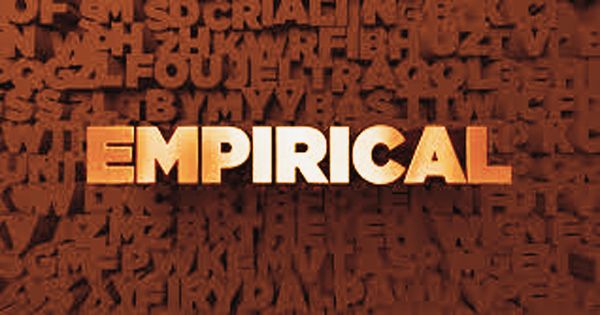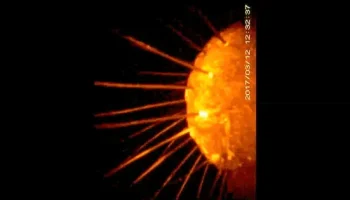The knowledge gained through observation and recording of such actions and patterns or through an experiment is empirical evidence. The expression comes from the word for experience in Greek, ἐμπειρία (empeiría). It is popular in philosophy, after Immanuel Kant, to call knowledge acquired a posteriori knowledge (as opposed to a priori knowledge). Empirical evidence is an important component of a scientific research process that is used in many disciplines.
The scientific method begins with scientists developing questions or theories, then gaining the expertise to either support or disprove a particular hypothesis through observations and experiments. In the scientific world, the group can consider a hypothesis only if ample (empirical) evidence is given that supports the hypothesis. Jaime Tanner, a professor of biology at Marlboro College in Vermont, said, “Empirical evidence requires measurements or data obtained by direct observation or experimentation.” To collect analytical measurements and data, there are two research approaches used: qualitative and quantitative.
- Qualitative: The type of data which describes non-measurable information is qualitative evidence It is also used in the social sciences and explores the factors behind human actions in market analysis and finance. As well as its subjective analysis, the non-measurable existence of qualitative data makes it vulnerable to possible biases.
- Quantitative: Quantitative evidence requires tools that are used to obtain and interpret numerical data using statistical methods. In almost every discipline in science, quantitative data is used.

Example of Empirical Evidence
Empirical evidence is data that verifies the validity of an argument (which correlates accurately to reality) or falsity (inaccuracy). It is obtained mainly through observation or experimentation. As primary sources, the findings or experiments are known. It can, however, also be obtained from various secondary sources, like papers, studies, journals, etc. Empirical science is also the method of discovering empirical evidence. Empirical evidence is data gained by perception or experimentation, as recorded information, which might be the subject of investigation (for example by researchers). This is the essential wellspring of experimental proof. Auxiliary sources depict, examine, decipher, remark upon, break down, assess, sum up, and measure essential sources.
The compilation of unbiased data is the principal concern of scientific science. Researchers must plan the study carefully while minimizing exposure to possible mistakes. There are some things one should search for when deciding if a proof is empirical, according to the Pennsylvania State University Libraries.:
- Can the experiment be recreated and tested?
- Does the experiment have a statement about the methodology, tools, and controls used?
- Is there a definition of the group or phenomena being studied?
It is normal in the scientific world that, through the replication of the same study, many scientists or researchers collect evidence simultaneously. Furthermore, a peer review is a primary scientific instrument that is used to verify the evidence presented in a study or analysis. Statements and statements are sometimes referred to as a posteriori (following experience) as distinct from a priori (preceding it), based on empirical proof. Empirical, narrative, and intelligent proof ought not to be befuddled. They are independent sorts of proof that can be utilized to attempt to demonstrate or negate and thought or guarantee.
Information Sources:




